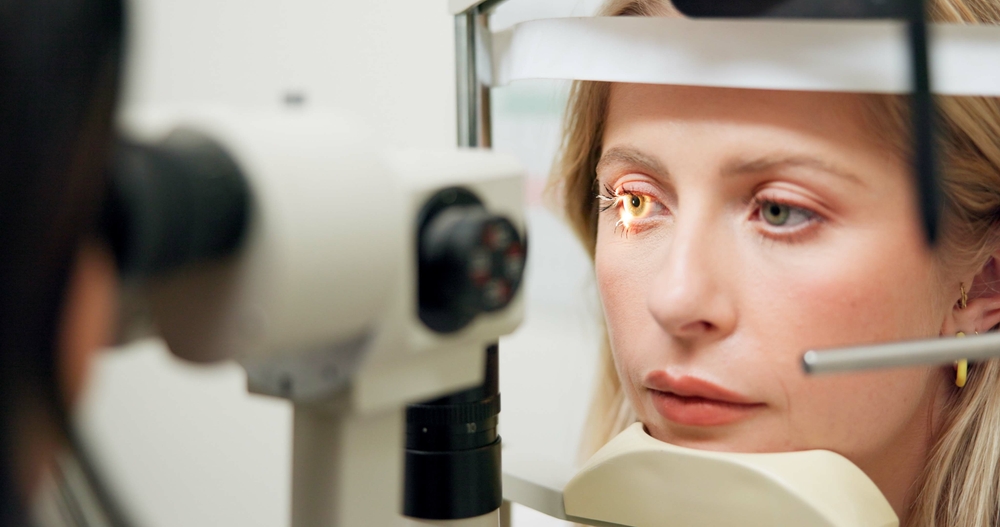There’s a growing body of evidence linking alcohol consumption with wider health problems, even amongst moderate drinkers.
The research shows there are some lesser-known health implications that go hand in hand with drinking alcohol, such as the deterioration to our eyesight, to be aware of.
To coincide with Sober for October, Mark Shelton, Optometrist at Bayfields Opticians and Audiologists is highlighting how alcohol can have a negative impact on the condition of our eyes and vision.
Dry eyes
“As well as damaging the immune system, impacting sleep patterns and decreasing energy levels, alcohol isn’t good for our eyesight. The short-term impact of drinking alcohol is well documented – blurred or double vision. But alcohol can also dehydrate the eyes and make it difficult for the body to produce enough tears, resulting in dry eyes, which can last for a day or two after drinking. Repeated consumption makes it harder to absorb vitamins and can lead to a slowing down of your body regenerating eye tissue, exacerbating this condition further.”
Vision loss
“Some studies suggest that having more than three alcoholic drinks a day can have more long-term consequences on a person’s vision, increasing your risk of developing age-related macular degeneration (AMD), which can cause the individual to lose focus in their central field of vision.
“As a person consumes more alcohol, their liver is less effective at performing its other key functions, leading to higher levels of toxins in the blood. A build-up of these toxins over time may cause damage to many parts of the body, potentially including the optic nerve. This condition is called Optic Neuropathy and although this is a rare occurrence it is generally believed that the lack of nutrients to the nerve cause by excessive alcohol can be a factor which in turn lead to a painless loss of vision.”

Increased risk of cataracts
“Additionally, changes in blood pressure caused by alcohol reduce how many nutrients and how much oxygen the optic nerve receives, and changes in levels of B12, or thiamine, can also damage vision. There are also some studies which suggest that excessive drinking can lead to an increased risk of cataracts, which is a condition that makes the clear lens of the eye go cloudy or opaque.”
Discoloured eyes
“Your eyes can provide clues to your general health and wellbeing too. People who complete Sober for October – or go even longer without booze – may well find their eyes look brighter and feel more comfortable.
“The whites of the eye, known as the sclera, should be white in colour. If they look yellow it could be a sign of jaundice, which means the liver, gallbladder and bile ducts aren’t working properly. This condition can occur if someone has drunk too much over a long period of time. If the whites of your eyes discolour, this could also be a sign of other health conditions such as blood disorders, anaemia, pancreatitis, or some cancers.
“We’d urge anyone who has noticed a change in the feel, look or function of their eyes to seek a thorough examination that checks eye health, as well as vision, as soon as possible.”
For further information or to book an eye examination visit www.bayfieldsopticians.com